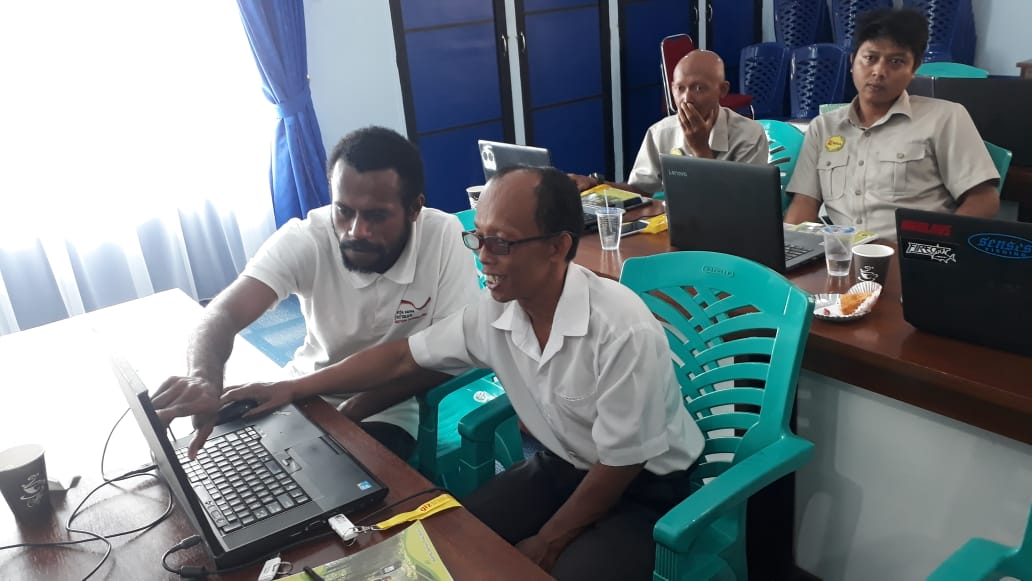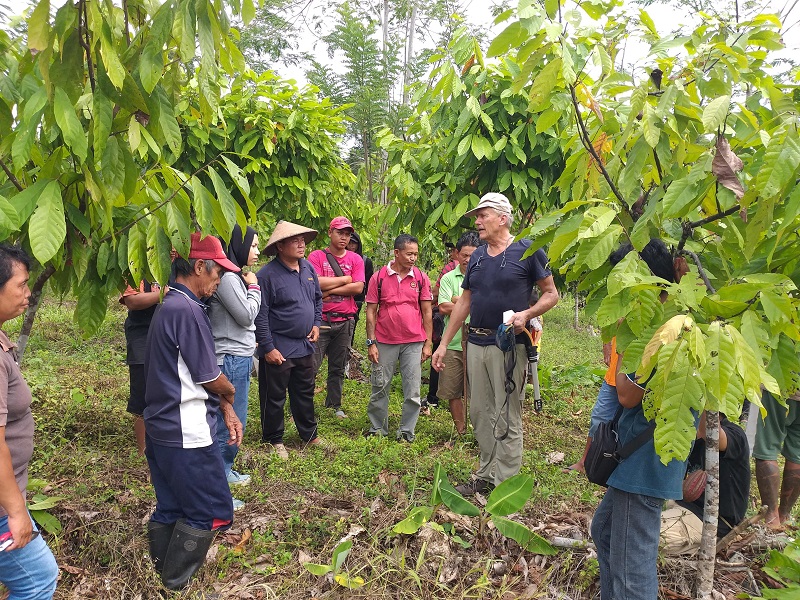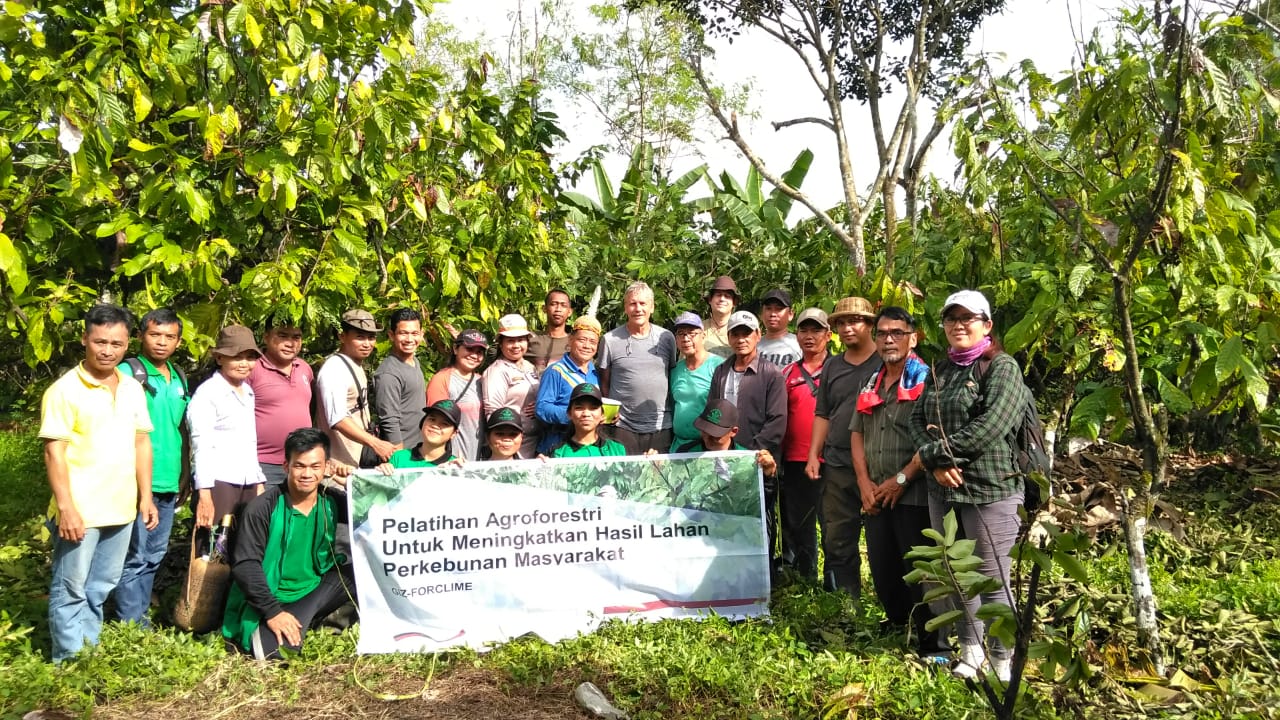FORCLIME
Forests and Climate Change ProgrammeTechnical Cooperation (TC Module)

Select your language

The Kapuas Hulu District Government in collaboration with FORCLIME conducted a training on Geographic Information Systems (GIS) for local planning officials and members of the Kapuas Hulu Geoportal on 7-10 August 2019 in Kapuas Hulu, West Kalimantan. The purpose of this training is to increase the knowledge and capacity of BAPPEDA technical staff and members of the Kapuas Hulu Geoportal regarding the use of GIS within the one map policy process in Kapuas Hulu District. The training participants, 30 people, were representatives from the BAPPEDA, the Spatial Planning Office, the Agriculture and Food Service, the Resettlement and Environmental Service, the Community and Village Empowerment Service, the Land Affairs Division, the Regional Finance Agency, the Bina Marga Office, the District Tourism Service and the Regional Disasters Management Agency.
In his remarks, the Head of BAPPEDA of Kapuas Hulu Regency, M. Nasir, stated that the participants were expected to be able to assist the relevant agencies to map administrative boundaries for villages in Kapuas Hulu.
After the training, the trained officials may request assistance from FORCLIME during spatial data processing.
For further information, please contact:
Klothilde Sikun, Coordinator Kapuas Hulu district and Adviser for GIS in Kapuas Hulu
Gayus Josep L Yumame, intern student from Cenderawasih University
Fidel G Lopulalan, intern student from Cenderawasih University

From August 15th until 24th 2019 FORCLIME conducted agroforestry trainings for FMU extension workers and selected farmers with the internationally renowned agroforestry expert Joachim Milz from Bolivia. These trainings were conducted in a sequence from Kapuas Hulu, then Malinau and Berau and constitute a follow-up to a series of previous agroforestry training events. FORCLIME promotes agroforestry as a means to increase biodiversity and diversification of cash-crops. The underlying goal of agroforestry is to mimic natural forests, through high density and stratification. A selected composition of mutually complementing species around the specific main crop is planted, which does generally also include the cultivation of non-timber forest products. A well-designed agroforestry system can be managed without external inputs, because deliberately planted biomass serves as natural fertilizer. Ideally also no pesticides and herbicides are used in agroforestry, providing the added value of organic products. Last-but-not-least slash-and-burn free land clearing methods were presented to the audience. Thereby a vital impulse for sustainable development was provided to the relevant FMU´s and concerned farmers.
For further information, please contact:
Stephan Kitzbichler, Development Advisor for Non-Timber Forest Products (NTFP) and Value Chains for Green Economy Development
Lutz Hofheinz, Strategic Manager FMU Development

FORCLIME facilitated agroforestry training for cocoa farmers in Malinau, North Kalimantan on 19-20 August 2019. The event was conducted at two places, namely in Setulang village and in Pulau Sapi village. The training aims to increase cocoa productivity in Malinau. Beside farmers from Setulang and Pulau Sapi villages, the training was also attended by representatives from the North Kalimantan Forestry Service, the Sajau Village Forest Management Board, Forest Management Unit (KPH) Bulungan, local NGOs (Pionir Bulungan, the Malinau agroforestry extension association-IPAMA), the Malinau Agricultural Service, the Malinau vocational school (SPP Malinau) and KPH Unit X Malinau.
In addition to theory, participants also carried out field practices, such as how to do pruning, thinning, stratification, handling pest and diseases and cocoa side grafting. During the field practices, participants learned techniques on planting rice without burning when opening the land. Moreover, they learned how to manage fruit and cocoa trees using the agroforestry approach.
The training evaluation showed that participants are fulfilled and gained knowledge needed for increasing their cocoa productivity, additionally, they expect to have further trainings to enhance their knowledge in managing cocoa farms and organizations related to cocoa production. After the training, participants will share their gained knowledge with other farmers at the respective villages.
For more information, please contact:
Mohammad Sidiq, Coordinator North Kalimantan Province
Helmi Yohanes Setiabudi, intern student from the Papua University
 |
Supported By: |
  |